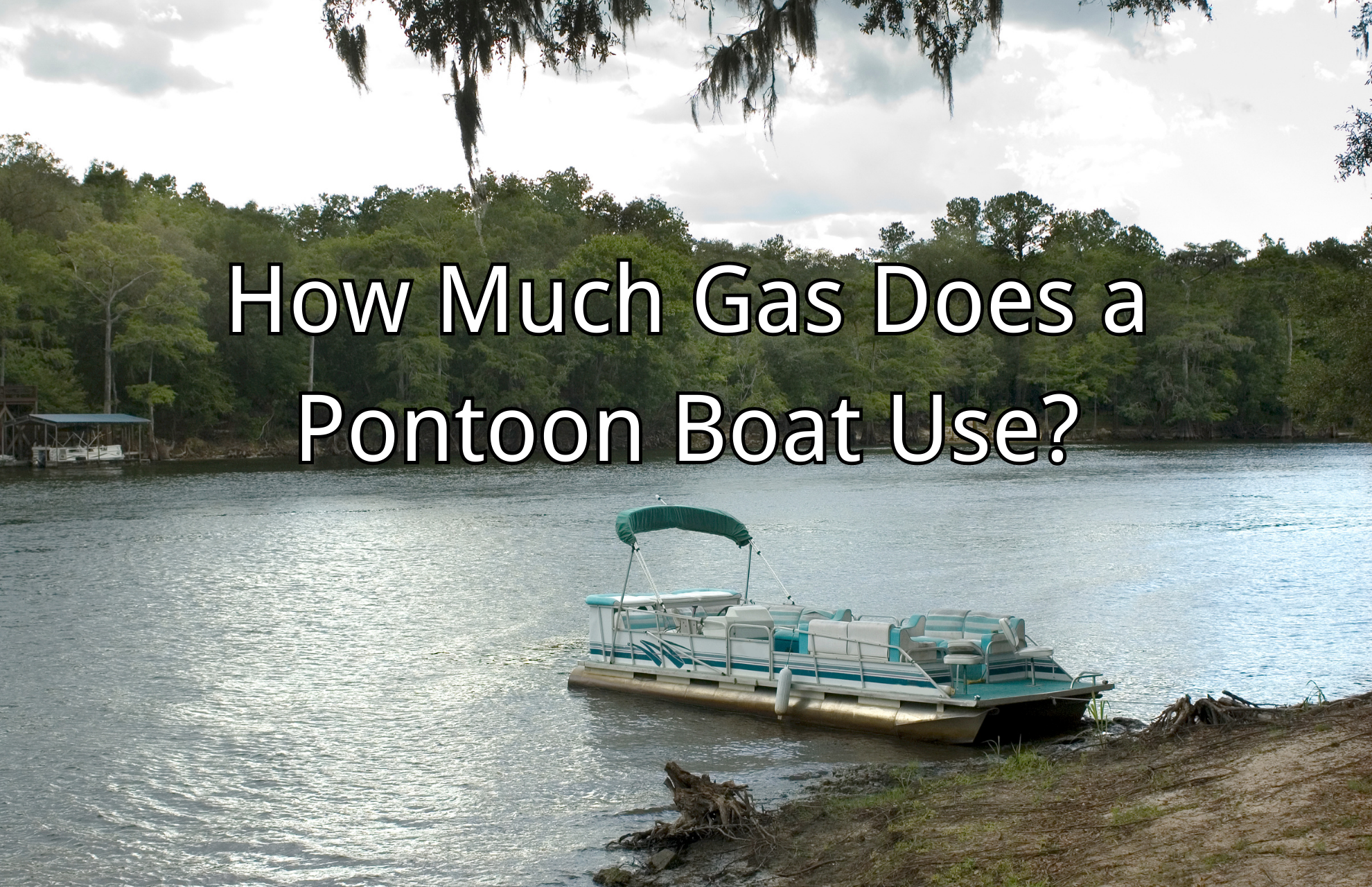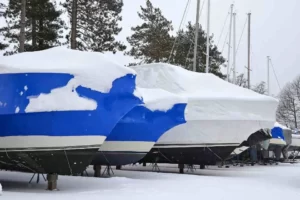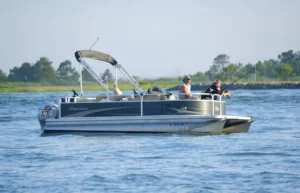You can reduce the costs associated with owning a pontoon boat by learning all you need to know about how much gas a pontoon boat uses.
Many first-time boat owners are unsure of the best fuel for their vessels. How much gas a pontoon boat use is today’s burning question. The average pontoon boat will consume around 5 gallons per hour at cruising speed. This implies that a five-hour boat trip will require 25 gallons of gas.
All aspects of gas in a pontoon boat will be covered in this blog. Please keep reading.
How Much Gas Does a Pontoon Boat Use?
The figures aren’t really set in stone because there are a lot of factors that go into a boat’s fuel consumption. However, by taking these factors into account, you may be able to predict how much (or little) your boat will use.
Motor
When it comes to gas consumption, your motor’s power is the first and most important factor. The motor will consume more gas the more horsepower it has. Therefore, a 50-horsepower motor on a pontoon will consume a lot less fuel than a 115-horsepower triton motor.
However, motor maintenance is a more important concern than horsepower. An unmaintained engine will use more gas. In terms of fuel efficiency, older boats frequently fall short of brand-new boats straight out of the showroom.
Size and Weight of the Boat
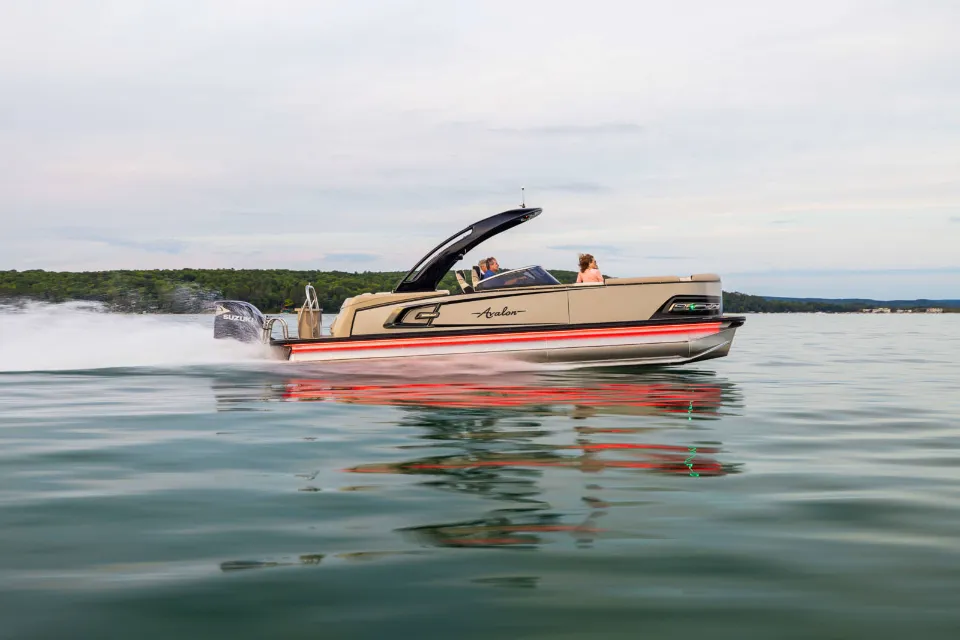
It’s crucial to weigh your boat’s size against its motor’s power for a reason. A boat that is too large for the amount of power a small motor can generate will have trouble moving. The weight of the watercraft adds to the burden on the motor.
Your boat’s gas consumption can rise significantly if it is overloaded with passengers, equipment, and other items. A boat that is excessively large compared to the power of its motor can also lower your rating for fuel consumption.
Speed
Naturally, driving speed has an impact on fuel economy as well. Faster speeds tend to exhaust the motor and use more power. Nevertheless, driving quickly can actually reduce the overall distance you can cover on a single full tank as opposed to spreading it out and moving much more slowly.
Environmental Conditions
Your fuel consumption will essentially be impacted by anything that hinders your forward propulsion. You could therefore anticipate using your motor a little bit more, which would result in a faster rate of gas consumption if the waters are choppy and rough and the wind is pushing you back.
How to Calculate Pontoon Fuel Consumption?
It’s always best to be aware of how much gas your pontoon consumes so you can calculate how much you’ll need to make a trip. The problem with pontoons, though, is that different boats’ fuel consumption never exactly varies.
In other words, because of the special features of your boat’s motor, structure, and general performance, it might consume more fuel than others.
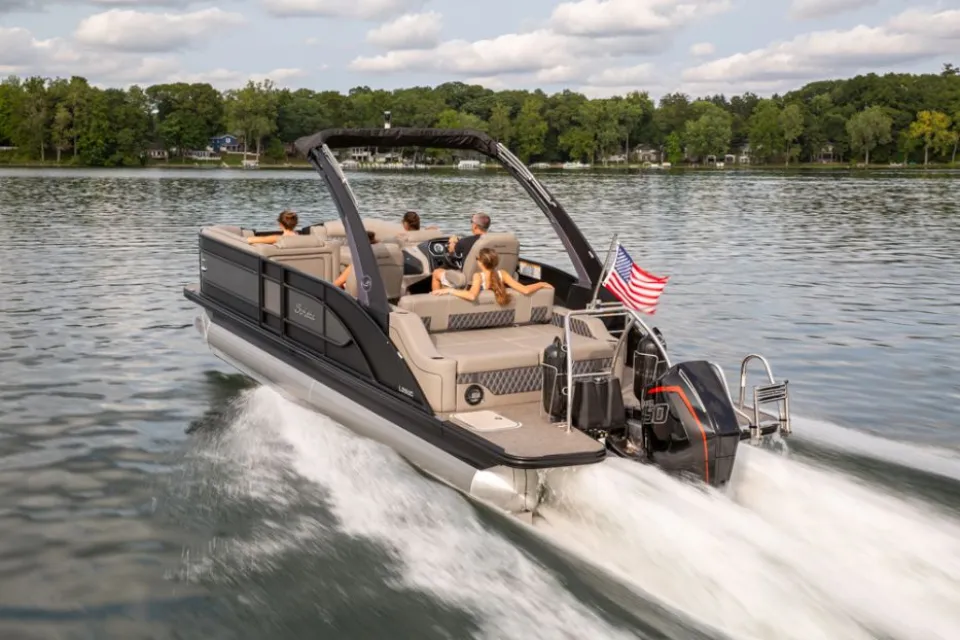
So to calculate your distinct fuel consumption, you can try this quick formula:
Kilometers traveled ÷ liters used = Kilometers per liter
Miles per liter tells you how far you can go for every liter of gas in your tank. But to make that information a little more useful, you can try calculating how much gas you need for a given trip. This would be called liters per given distance, which basically explains how many liters of gas you need in order to travel a specified distance.
How to Save Pontoon Boat Gas and Fuel?
If you’re anything like me, you’re constantly looking for ways to save money on fuel and extend the life of your boat. It is reasonable given the current cost of gas. Instead of pricey fuel, I’d rather spend that money on fishing equipment.
If you don’t have time to read that, then here are my 6 top tips on how to save gas when owning a pontoon boat:
- Maintain your pontoon boat’s engine regularly
- Estimate how much fuel you use – you might be shocked
- Find your boat’s sweet spot for optimum fuel consumption
- Distribute weight evenly across the deck
- Tune up your propeller a couple of times a year
- Try to reduce drag and take off excess load weight
- That includes dropping the Bimini top to lessen resistance
- Learn to use your trim tabs properly
Where to Buy Gas for Pontoons?

It’s interesting to note that the majority of modern pontoon boats are fuel-efficient and can use regular gasoline. Just make sure you’re buying E10 or ethanol-free gasoline. Anything with an ethanol content of more than 10% can harm your engine and possibly the environment.
And while you might be thinking to save a penny or two by buying cheaper fuel from off-brand sellers, it helps to know that there’s no way to know what kind of gas you’re getting if you’re buying from an untrusted source. Sure, we all want to save a little extra when spending on gas, but choosing a shady source isn’t the way to do it.
What Kind of Gasoline Does a Pontoon Boat Use?
Pontoon boat owners typically use regular unleaded E10 fuel. Finding it shouldn’t be a problem since the majority of gas stations now offer the 10% ethanol/ 90% gasoline mixture. The size of the gas tank on your pontoon boat maybe 10 gallons or less or over 35 gallons.
Many typical pontoon boats have two 12-gallon tanks, which, assuming the standard flow rate of 5 gallons per hour, allows for about 5 to 6 hours of surface time. Naturally, a number of variables, including the size of the engine, the weight of the pontoon boat and its passengers, and the amount of cruising done, will affect how much fuel is used.
Conclusion: Gas in a Pontoon Boat
How much gas does a pontoon boat consume then? There isn’t really a specific number. Furthermore, while it is true that pontoon gas can be pricey, it need not always be.
Faster motorboats will burn more fuel than slower pontoon boats. A smaller horsepower engine might only require 5 gallons of gas per hour from you.
FAQs
How Far Can a Boat Go on a Tank of Gas?
As a general rule, the fuel tank gets bigger than the vessel. For instance, a 75-foot motorized vessel that can carry 11,000 liters of fuel can travel about 1500 nautical miles, depending on conditions, whereas a 35-45 foot motorized yacht with a 100-liter tank can travel about 400 nautical miles.
What If a Boat Runs Out of Gas?
As you secure the boat and your crew, maintain your composure. Put on a life jacket for each person on the boat. To stay in the same place, let go of your anchor. You can ask a friend, the marina manager, or a reputable boat towing business like Sea Tow or TowBoatUS for help by making a call to them.
How Long Do Gas Boat Engines Last?
The average marine gasoline engine runs for 1,500 hours before needing a major overhaul. Under the same circumstances, the typical marine diesel engine can run for more than three times as long and 5,000 hours on average.

